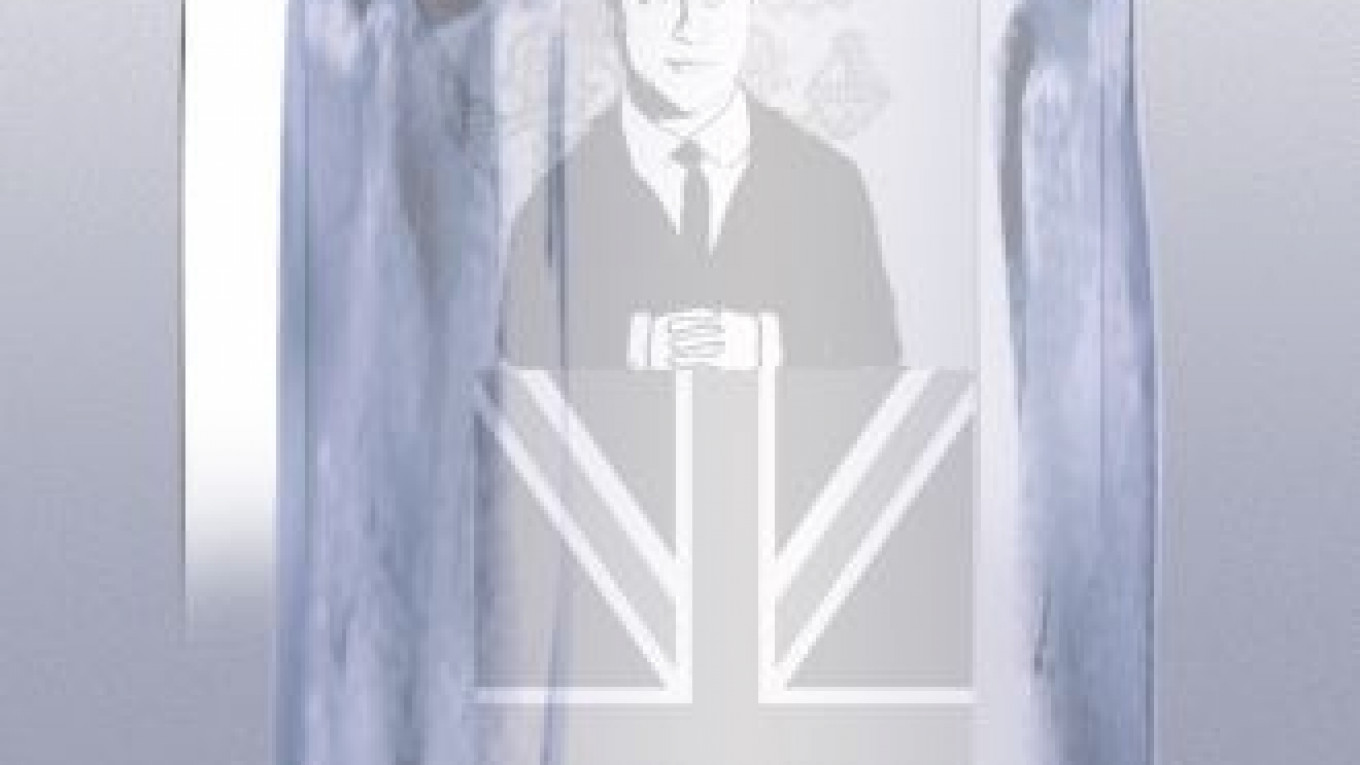Dear Prime Minister Cameron,
During your recent visit to Moscow you claimed that you would like to take on the skeptics of the Russian-British relationship. I would like to accept that challenge.
In your speech at Moscow State University on Sept. 12, you outlined two types of skeptics — those who believe Britain is untrustworthy and for whom the relationship is connected to the Soviet past, and those, you said, who believe that Russia should not modernize, innovate and open up.
Taking your second set of skeptics first, I can think of almost no one who believes that Russia should not modernize, innovate or open up. Where did you get that from? You would have to be reliving the Cold War to believe that Russia should be deliberately kept down in any way. All reasonable people want a modern Russia, even if we only define modernization narrowly, as the Kremlin has done, as scientific-technical modernization.
There are, however, a great number of skeptics who doubt Russia’s ability to modernize because of Russia’s structural impediments — the way institutions penalize initiative, overreliance on hydrocarbons, corruption, absence of property rights, brain drain, and declining population over a vast territory, to name only a few factors.
This, surely, is a more realistic type of skepticism for which there is considerable documented evidence. The fact that Russia’s modernization program is state-directed and top-down is not encouraging; and restrictions on competition, imports and investment only contradict Russia’s own declared aim. In sum, there is plenty of rhetoric about modernization but very little substance.
Let me at this point congratulate you on at least attempting to walk the difficult tightrope between promoting Russian-British trade and investment along with the CEOs of large British firms who accompanied you, on the one side; and addressing the concerns of a number of human rights organizations, which did not seem to have been invited, on the other. It is, as you implied, unreasonable not to encourage trade and investment in such a large and potentially profitable market.
Equally, it is highly unethical to ignore issues such as the Alexander Litvinenko and Sergei Magnitsky cases, the harassment of the British Council and former British ambassador, and the unilateral annexation of two parts of Georgia after an interstate war — not to mention broader concerns over democratic regression, the lack of freedom of the press and the absence of separation between the courts and the Russian state.
These are not only ethical issues; they all have a direct relationship to the business climate you speak of. There would be many more British investors in Russia were it not for these acts.
You don’t have to be a Cold War warrior to acknowledge that Russia remains a highly problematic country on a wide range of issues. I understand why you used the banal word “cooperate” — or a variation of it — seven times in your speech. Who doesn’t want to cooperate? But I know you know that levels of Russian espionage in London have not decreased since the Cold War, that the pre-trip briefings you would have received painted a rather differently shaded picture of today’s Russia.
It is clear that you and your colleagues decided to play politics in Moscow and readjust the picture you gave, contrary to the available evidence. That is disappointing.
Former British Prime Minister Tony Blair did something similar in the late 1990s when he visited Moscow and failed to pay more than lip service to the atrocities in the second Chechen war. A lack of honesty from Blair back then may have helped in the short term, but what has the result been? A lack of clarity and a volatile relationship ever since. It is hard to see what purpose playing politics and being “pragmatic” served, if you wish to think strategically — and long-term — about Russia.
Of course, Britain should cooperate with Russia. I merely suggest, as various stakeholders follow up on your visit, that a more realistic interpretation of Russia than the one you gave — warts and all — should help us to better define the nature and level of that cooperation.
James Nixey is manager and research fellow with the Russia and Eurasia Program at Chatham House.
A Message from The Moscow Times:
Dear readers,
We are facing unprecedented challenges. Russia's Prosecutor General's Office has designated The Moscow Times as an "undesirable" organization, criminalizing our work and putting our staff at risk of prosecution. This follows our earlier unjust labeling as a "foreign agent."
These actions are direct attempts to silence independent journalism in Russia. The authorities claim our work "discredits the decisions of the Russian leadership." We see things differently: we strive to provide accurate, unbiased reporting on Russia.
We, the journalists of The Moscow Times, refuse to be silenced. But to continue our work, we need your help.
Your support, no matter how small, makes a world of difference. If you can, please support us monthly starting from just $2. It's quick to set up, and every contribution makes a significant impact.
By supporting The Moscow Times, you're defending open, independent journalism in the face of repression. Thank you for standing with us.
Remind me later.






